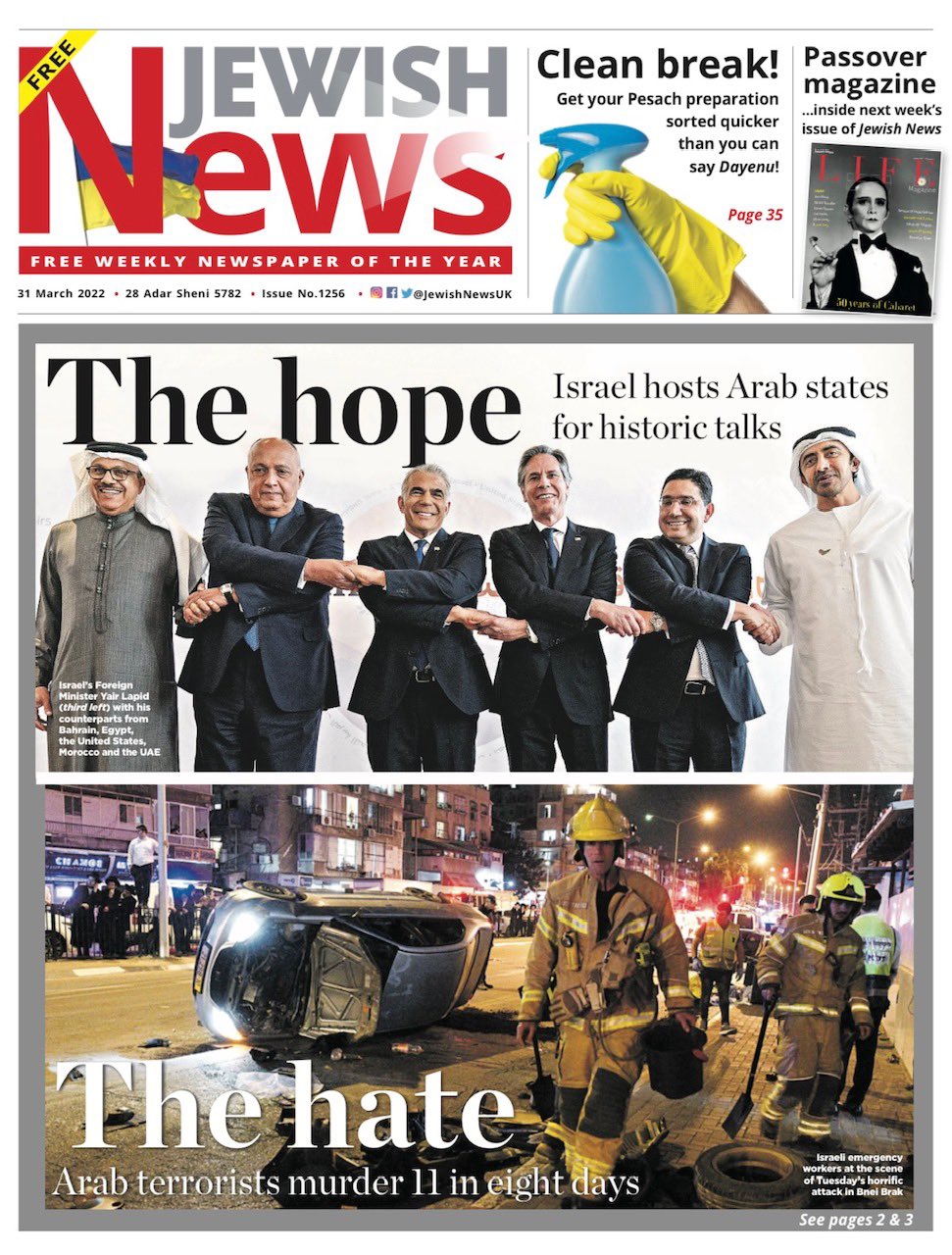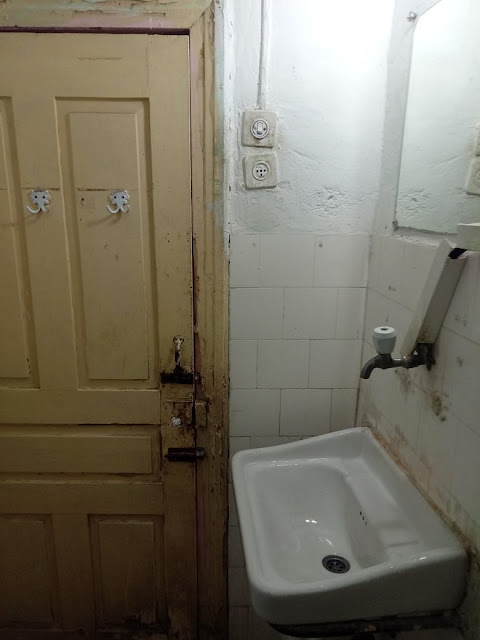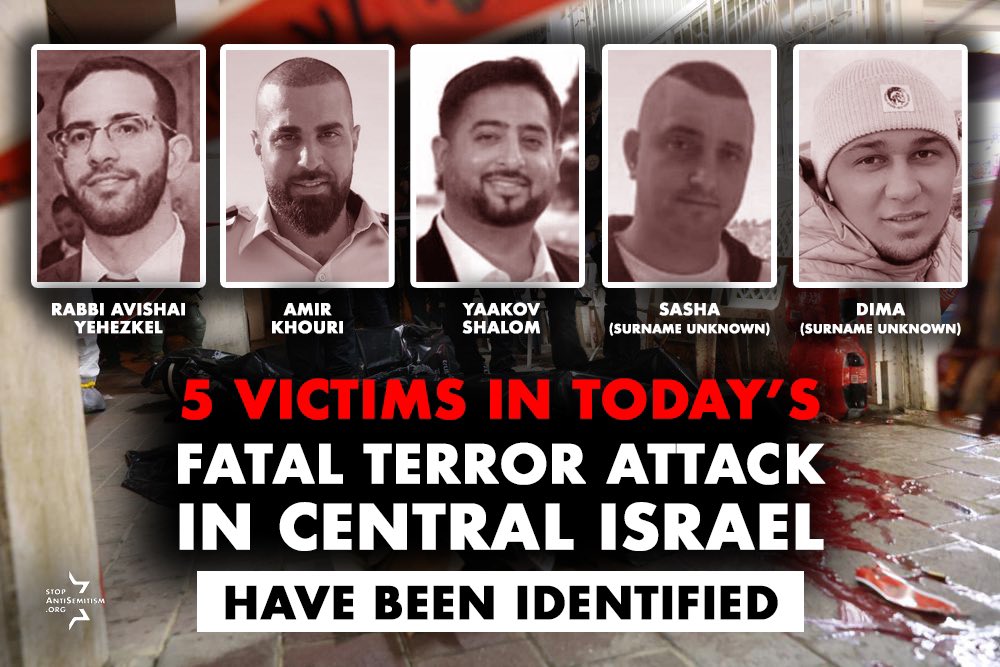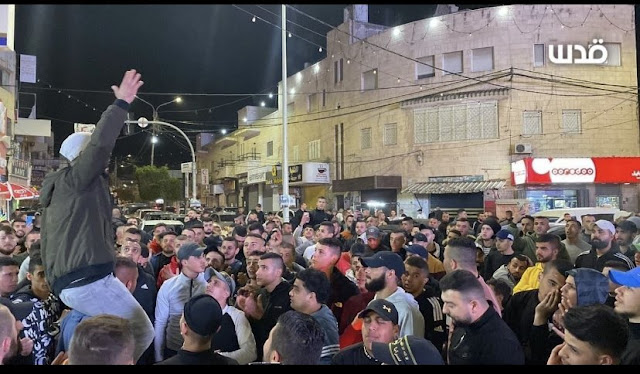Noah Rothman: In Israel, the Grimly Familiar and the Utterly Shocking
An ominously familiar scene unfolded on Tuesday night in the Tel Aviv suburb of Bnei Brak—one that Israeli Prime Minister Naftali Bennett said was indicative of “a new wave of terrorism” washing over the country.What's Behind the Spate of Terror Attacks in Israel?
Gruesome video of that event showed an attacker, dressed all in black, firing an M16 assault rifle indiscriminately at passersby. The attacker shot and killed four, including a police officer, before he was neutralized. The gunman was later identified as a 27-year-old Palestinian from the West Bank. While no terrorist organization has yet claimed responsibility for the attack, several militant groups—including Hamas—welcomed this act of barbarism.
Another grimly familiar spectacle occurred shortly thereafter in the Hamas-run Gaza Strip. As news of the bloodshed spread inside Gaza, images of militants handing out celebratory sweets to locals flooded social media. It was all evocative of the painful and persistent violence that has colored so much of the region’s history, and it may presage even more terrible events yet to come. This mass shooting was the fifth in a recent series of terrorist acts that have so far taken 11 lives inside Israel. That’s more violent death than Israel has experienced outside wartime in years.
“After a period of quiet, there is a violent eruption by those who want to destroy us, those who want to hurt us at any price,” Bennett said in a recorded address. “They are prepared to die so that we will not live in peace.” It’s enough to leave observers with a terrible sense of déjà vu. Yet, a sense that the bad old days might be back is belied by the truly unfamiliar—indeed, seminal—circumstances that likely contributed to this spate of violence.
The backdrop against which these attacks were set is the full flowering of Israel’s emergence on its regional stage as a key power—not just militarily but diplomatically, too. This week, the foreign ministers of Bahrain, Egypt, Morocco, and the United Arab Emirates, as well as Secretary of State Antony Blinken, traveled to a resort in the Negev desert in Israel for a formal diplomatic summit. There, the representatives of these Arab nations coordinated with the Jewish state’s head of diplomatic affairs on issues ranging from the extraordinary to the mundane.
On the face of it, the attacks are unconnected: a Bedouin from the Negev with nationalist leanings; two extreme Islamist Israeli Arabs connected to ISIS; and a Palestinian terrorist from the West Bank. In fact, there is a close and direct connection of atmosphere, encouragement and unceasing incitement on the part of terrorist organizations and political leaders, while several conditions for such an outbreak of terror have emerged.Jonathan Tobin: Don’t reward Palestinians for a new wave of terror
The security forces are wont to describe the territories as a "bubbling cauldron", for economic, political, and other reasons, on which the lid is kept tight shut by various means, partly military, but mostly economic. The moderating effect of an economy that is in a reasonable state and is developing is huge, and prevents a popular uprising like the two intifadas. Effective security measures help to thwart most terrorist attacks, which are almost all stopped at the planning stage in the terrorists' homes.
The relative quiet has, however, perhaps led to a degree of lassitude and an exaggerated sense of security. We live in a hostile environment in which the desire to annihilate Israel is alive and kicking, and the bubbling cauldron spills over now and then. The consequences of successful attacks are far-reaching. Israel looks more and more vulnerable, the Israel Security Agency and the security forces are seen to have failed, and the video clips and security camera footage showing terrorists opening fire in the heart of Israeli cities are a highly effective catalyst. Israel looks vulnerable and weak. As one assessment from a security source described it in a closed discussion: "They smell blood. Suddenly, strong Israel is taking blows, and the attacks manage to inflict pain, and even more, to have a victory effect through clips of the attacks on social networks that go viral very fast." The influence of the video clips and the praise expressed in them for the "heroes" represent extremely strong encouragement.
After a week of terror attacks that took the lives of 11 people, Israelis are wondering whether they are on the brink of a third intifada. The Jewish state’s security forces are redoubling their efforts to try to anticipate or prevent further such atrocities. But the Israeli government needs to worry about more than just whether these seemingly random accounts will lead to more violence from Hamas or elements linked to the Palestinian Authority. It also has to be concerned about whether its sole superpower ally and other Western countries will use these tragedies as an excuse to revive failed policies of the past, whose goal is to pressure Israel into making concessions to the Palestinians.
Throughout much of the last 30 years, that was the pattern of events. But instead of taking an honest look at Palestinian political culture, which not only lauds terrorism but views violence as a legitimate and necessary expression of national identity, the West consistently treated acts of murder as a cry for help from the disadvantaged.
Such thinking was the product of a fundamental mistake about the nature of the conflict. Rather than Palestinian violence being caused by alleged Israeli oppression or the lack of progress towards peace, it was instead an expression of a long-held belief in the illegitimacy of a Jewish state and the need for action to eliminate it.
Given repeated Palestinian Arab refusals of offers of compromise on even the most advantageous terms dating back to the pre-state era, that much should have been obvious. The support for terror even on the part of so-called Palestinian moderates, who have continued to subsidize and applaud acts of terror against Jews, had to be ignored. The foolishness of a policy that responded to terror waves with diplomatic pressure on Israel essentially rewarded Palestinians for violence.
So if the events of the last week are the harbinger of more attacks inside Israel, the question is whether President Joe Biden’s foreign-policy team will respond to them by doing the same thing every past administration—with the sole exception being the government led by former President Donald Trump—did whenever terror attacks surged and announce a renewed emphasis on reviving peace negotiations. If they do, they should not expect the results to be any different from what happened in the past. Instead of, as they claim, undermining the rationale for terror against Israel, it will send a message to the Palestinians that violence is the way to garner more support for their futile century-old war on Zionism and the Jewish presence in the territory between the Mediterranean and the Jordan River.









.jpg)



.jpg)





































